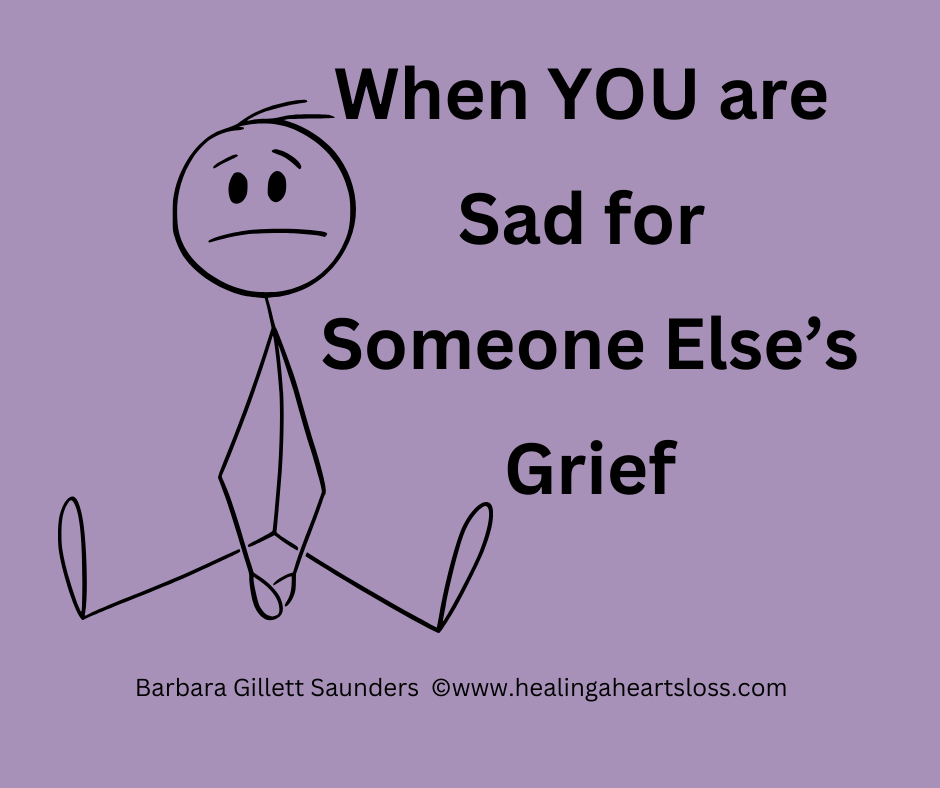In some cases when you are sad for someone else’s loss or grief it can affect your everyday life mentally, emotionally, spiritually and physically. There can be a trickle-down effect that is noticed by family, friends and co-workers.
What do I mean by a “trickle-down” effect? Ask yourself, are you behaving differently than you did before? Is your sadness for someone else’s situation causing you stress, sleepless nights and emotional turmoil?
I remember hearing the phrase, “You didn’t cause it, and you can’t fix it”. This is so true, but for many people who want to “fix things” this is no help. You might ask, “What can I do?”
First, realize you cannot “fix” someone else’s situation. Second, be there in a supportive manner for that person when they need you. For some individuals offering prayers, sending love and light to the situation are silent and passive ways of being supportive if this is something that resonates with you.
A more active manner of being supportive is offering to accompany the individual when certain actions require an inner strength not plentiful at this time, for the person you are concerned about. Keep in mind that the act of them doing something for themself is empowering. Gradually, moving forward becomes easier, but in the meantime, it may be difficult for the person to do it alone.
Stay above the sadness trap and find constructive, supportive options to offer someone if need be. If you are pulled down too far you will not be as effective at supporting someone else or being creative in your suggestions.
What are a few things you could do to help someone who is struggling with their sadness? Perhaps take the individual away from the regular stresses of life for a few hours; go for a drive, talk, walk, do something fun. Lead by example. When an individual is not too sure of them self it may be easier for them to follow your lead or suggestions.
Being supportive takes away the self-imposed “taking care of” pressure off your shoulders and enables you to remain detached with love. The key component is for you to not be pulled down into the sadness, helpless, victim pit.
I do not know about you, but I have been there and done that one already and it is not a nice place to be. No one can do it the actual work of getting better for someone else, even if we wanted to.
By “EMPOWERING YOURSELF, YOU EMPOWER OTHERS!”
Barbara Gillett Saunders
Grief Counsellor/Thanatologist.

